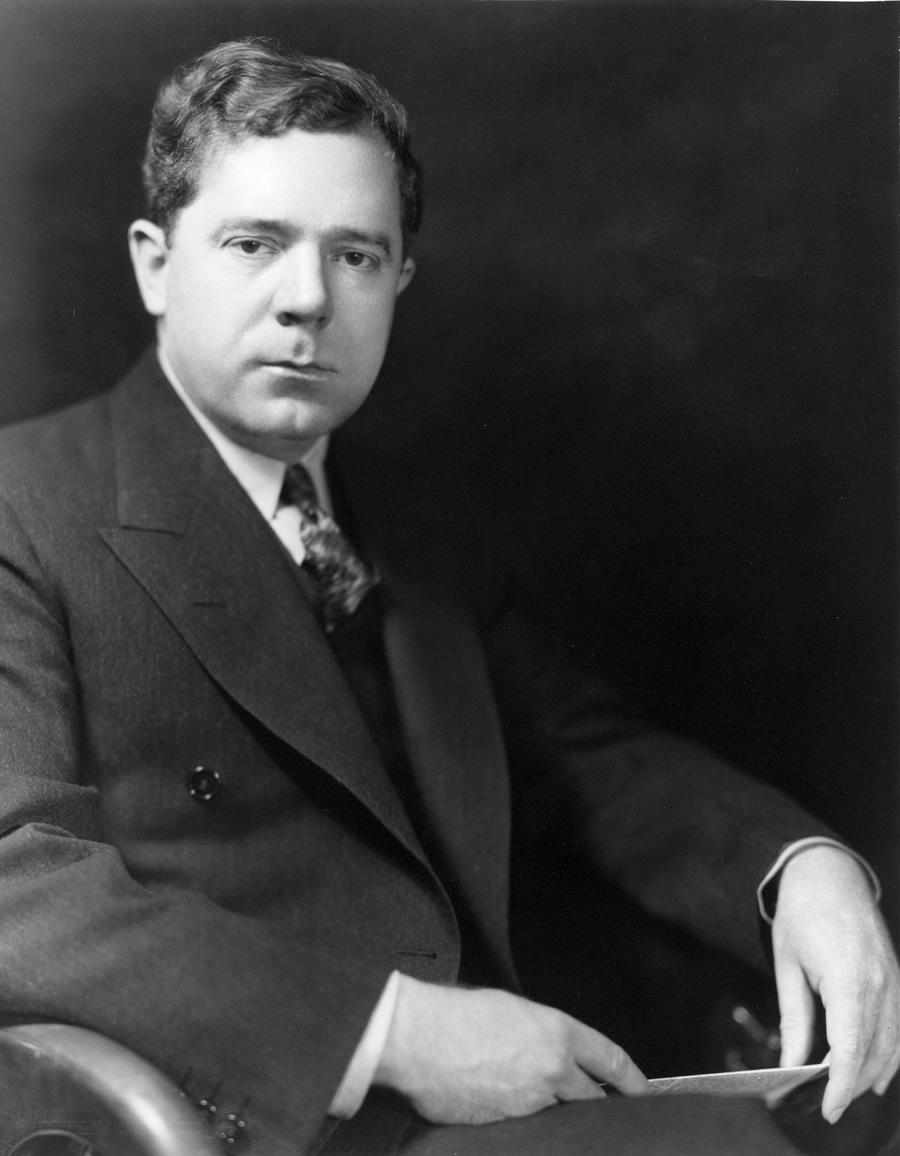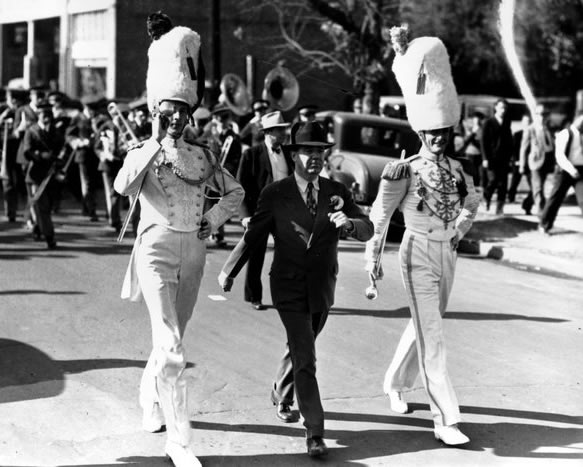 |
| Huey Long |
Both populist and demagogue, Huey Long, nicknamed "Kingfish," controlled his state of Louisiana as governor and U.S. senator and founded a political dynasty. During the Great Depression Long's popular "Share Our Wealth" scheme made him a credible challenger to President Franklin D. Roosevelt (FDR). That possibility abruptly ended in 1935 with Long's assassination.
Long was born in rural northern Louisiana. Although his family was comfortable, as a lawyer he specialized in representing underdogs fighting powerful organizations. Elected to Louisiana's Public Service Commission, he took on Standard Oil and telephone and railway companies. After an unsuccessful 1923 campaign for governor, Long won in 1927 using the slogan "Every Man a King, But No One Wears a Crown."
Long ruthlessly consolidated power through patronage, threats, and guile, creating a powerful political machine. He also gained popular support with initiatives to improve Louisiana's wretched schools, expand its inadequate highway system, finance hospitals, and improve Louisiana State University. Unlike most southern leaders of his era, Long rarely used race-baiting tactics, although most Louisiana blacks remained poor and disenfranchised.
  |
Usually surrounded by bodyguards, the flamboyant "Kingfish" used radio and sound trucks to bring voters his message unmediated by a mostly hostile press. Surviving impeachment in 1929 and term-limited by the state constitution, Long aspired to the Senate. But he declined to relinquish his grip on Louisiana, where he and his machine were collecting millions in kickbacks from those beholden to him for jobs or favorable legislation.
Long decisively won his Senate seat in 1930, staying in Baton Rouge until an obedient ally assumed the governorship. Loud, even buffoonish, in his clothing and manner, Long was fodder for a fascinated national press and soon attracted a host of enemies. In 1932, at first grudgingly, he supported Roosevelt's candidacy, playing a key convention role to assure FDR's nomination.
 |
| Senator Huey Long marched with the band before the 1934 Mississippi State game. |
The "honeymoon" between Long and the new president was soon over. Long sharply criticized FDR's emergency bank holiday of March 1933 and opposed other key New Deal legislation. By late 1933 FDR had written Long off, cutting off his patronage opportunities and ordering federal officials to investigate his finances.
Long focused on his "Share Our Wealth
Meanwhile, Long regularly used Senate filibusters to annoy the Democratic leadership and promote his political agenda. In June 1935 Long spoke for almost 16 hours—the longest filibuster to that time.
   |
That September Long returned to Baton Rouge, where he was still effectively governor. Leaving the House chamber on the evening of September 8, Long was shot by physician Carl Austin Weiss, son-in-law of a powerful judge who was Long's bitter enemy. Incompetently treated, the "Kingfish" died two days later. A hundred thousand mourners attended the funeral on the capitol grounds where he was buried.
Rose McConnell Long completed her husband's Senate term. His brother Earl became a controversial Louisiana governor. His brother George and cousins Gillis and Speedy Long served in the U.S. House. Russell Long, Huey's son, won a Senate seat in 1948, rising to chairmanship of the Finance Committee before retiring in 1987.
 |
| Huey Long funeral |
Years later Long was still popular despite ample proof of corrupt and despotic practices. Robert Penn Warren's best-selling 1946 novel, All the King's Men, a thinly veiled Long portrait, spawned several movie versions. A statue of Long stands in the U.S. Capitol's Statuary Hall.